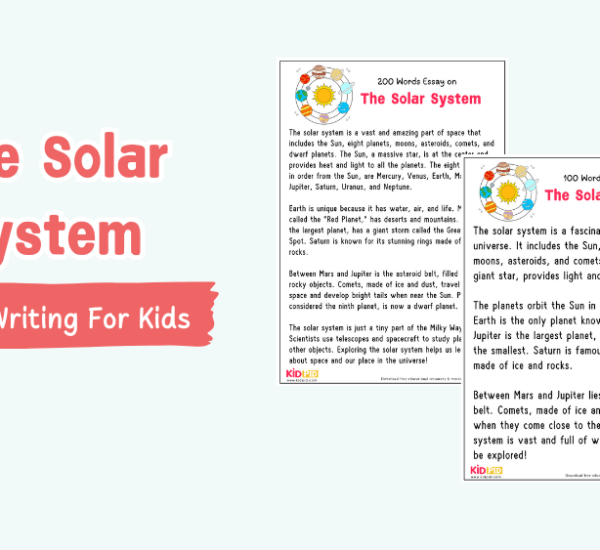Eleanor Roosevelt, a trailblazing First Lady, championed human rights, women’s rights, and racial equality, leaving a lasting legacy as a compassionate leader and advocate for social justice.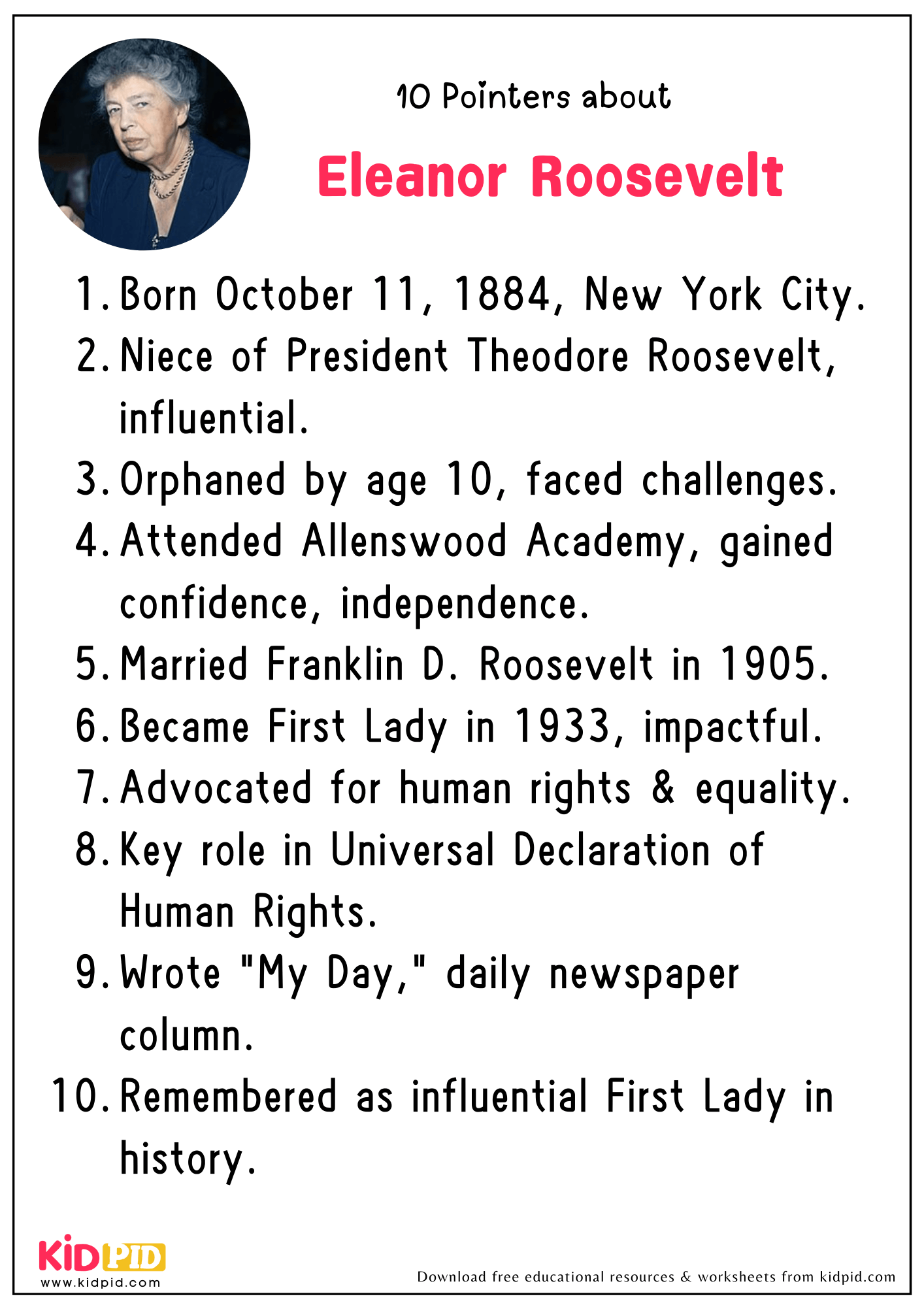
10 Points On The Topic “Eleanor Roosevelt”
- Born October 11, 1884, New York City.
- Niece of President Theodore Roosevelt, influential.
- Orphaned by age 10, faced challenges.
- Attended Allenswood Academy, gained confidence, independence.
- Married Franklin D. Roosevelt in 1905.
- Became First Lady in 1933, impactful.
- Advocated for human rights and equality.
- Key role in Universal Declaration of Human Rights.
- Wrote “My Day,” daily newspaper column.
- Remembered as influential First Lady in history.
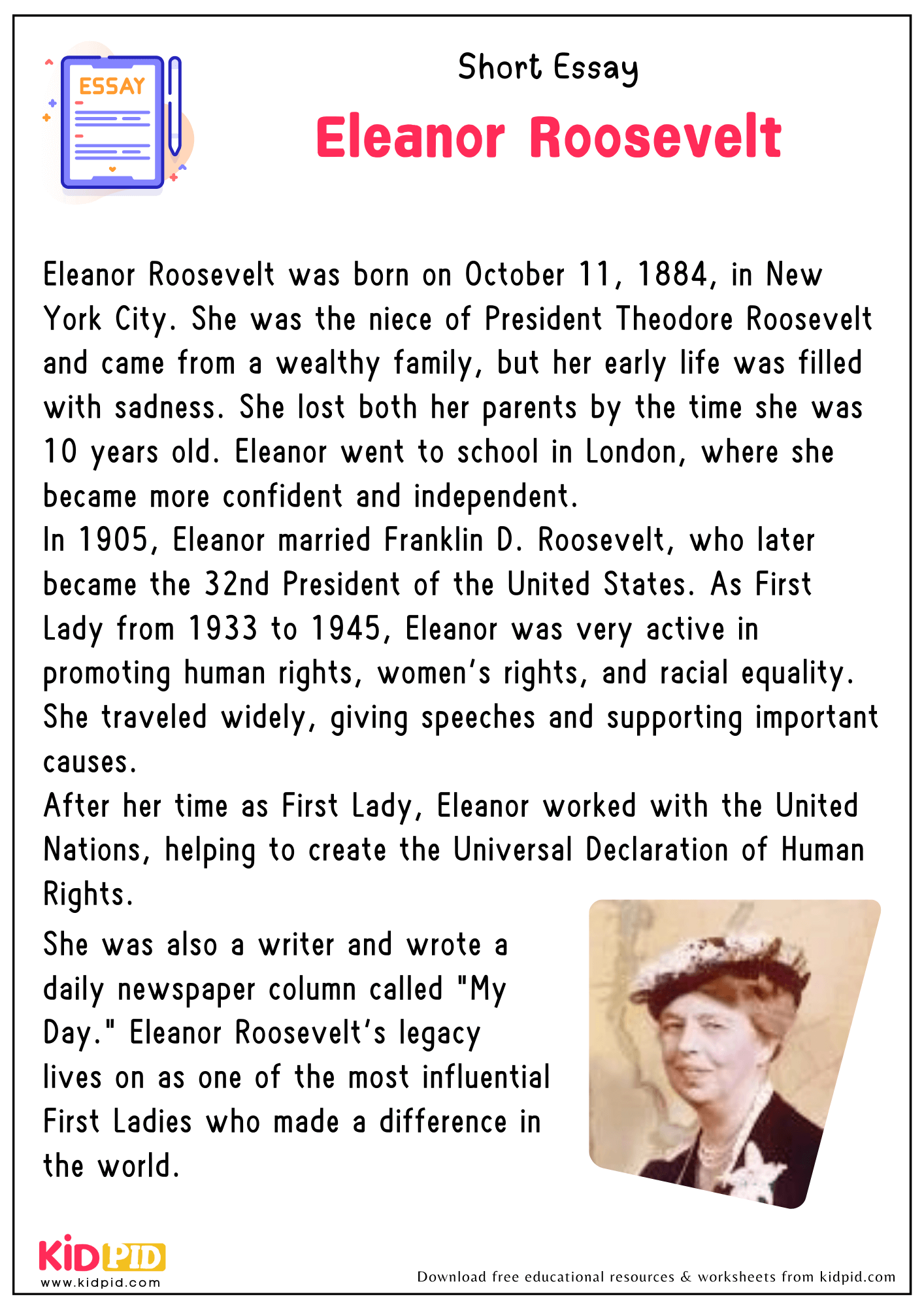
Short Essay On “Eleanor Roosevelt”
Eleanor Roosevelt was born on October 11, 1884, in New York City. She was the niece of President Theodore Roosevelt and came from a wealthy family, but her early life was filled with sadness. She lost both her parents by the time she was 10 years old. Eleanor went to school in London, where she became more confident and independent.
In 1905, Eleanor married Franklin D. Roosevelt, who later became the 32nd President of the United States. As First Lady from 1933 to 1945, Eleanor was very active in promoting human rights, women’s rights, and racial equality. She traveled widely, giving speeches and supporting important causes.
After her time as First Lady, Eleanor worked with the United Nations, helping to create the Universal Declaration of Human Rights.
She was also a writer and wrote a daily newspaper column called “My Day.” Eleanor Roosevelt’s legacy lives on as one of the most influential First Ladies who made a difference in the world.
Questions Based On The Essay On Eleanor Roosevelt
Q1. When was Eleanor Roosevelt born?
Ans. October 11, 1884
Q2. Who was Eleanor’s famous uncle?
Ans. President Theodore Roosevelt
Q3. Who did Eleanor marry in 1905?
Ans. Franklin D. Roosevelt
Q4. What causes did Eleanor Roosevelt support?
Ans.: Human rights, women’s rights, and racial equality
Q5. What was the name of her newspaper column?
Ans. My Day
You may like these:
Essay – Aretha Franklin: Iconic Singer and Cultural Innovator

This essay explores Aretha Franklin’s profound impact on music and culture, emphasizing her powerful voice, groundbreaking achievements, and role as a symbol of empowerment and social change throughout her career.
Essay – Toni Morrison: Esteemed Novelist and Literary Visionary

This essay examines Toni Morrison’s literary contributions, highlighting her exploration of African American identity, her innovative narrative techniques, and her influence on contemporary literature, earning her a Nobel Prize in Literature.
Essay – Jackie Robinson: Pioneering Athlete and Civil Rights Advocate
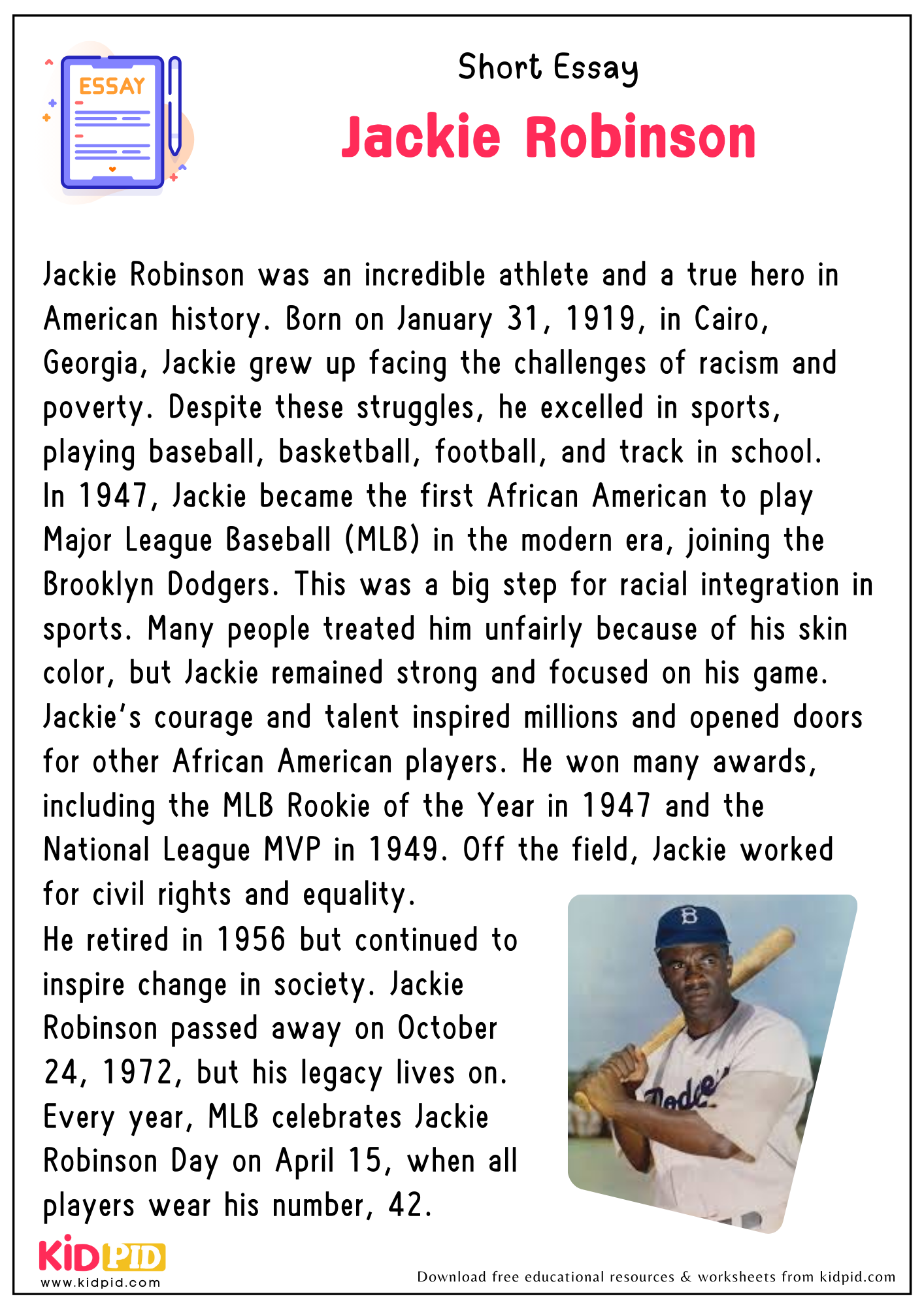
This essay discusses Jackie Robinson’s historic breaking of baseball’s color barrier, emphasizing his athletic prowess, resilience, and significant contributions to civil rights, inspiring future generations to challenge societal norms.
Essay – Neil Armstrong: First Human to Walk on the Moon
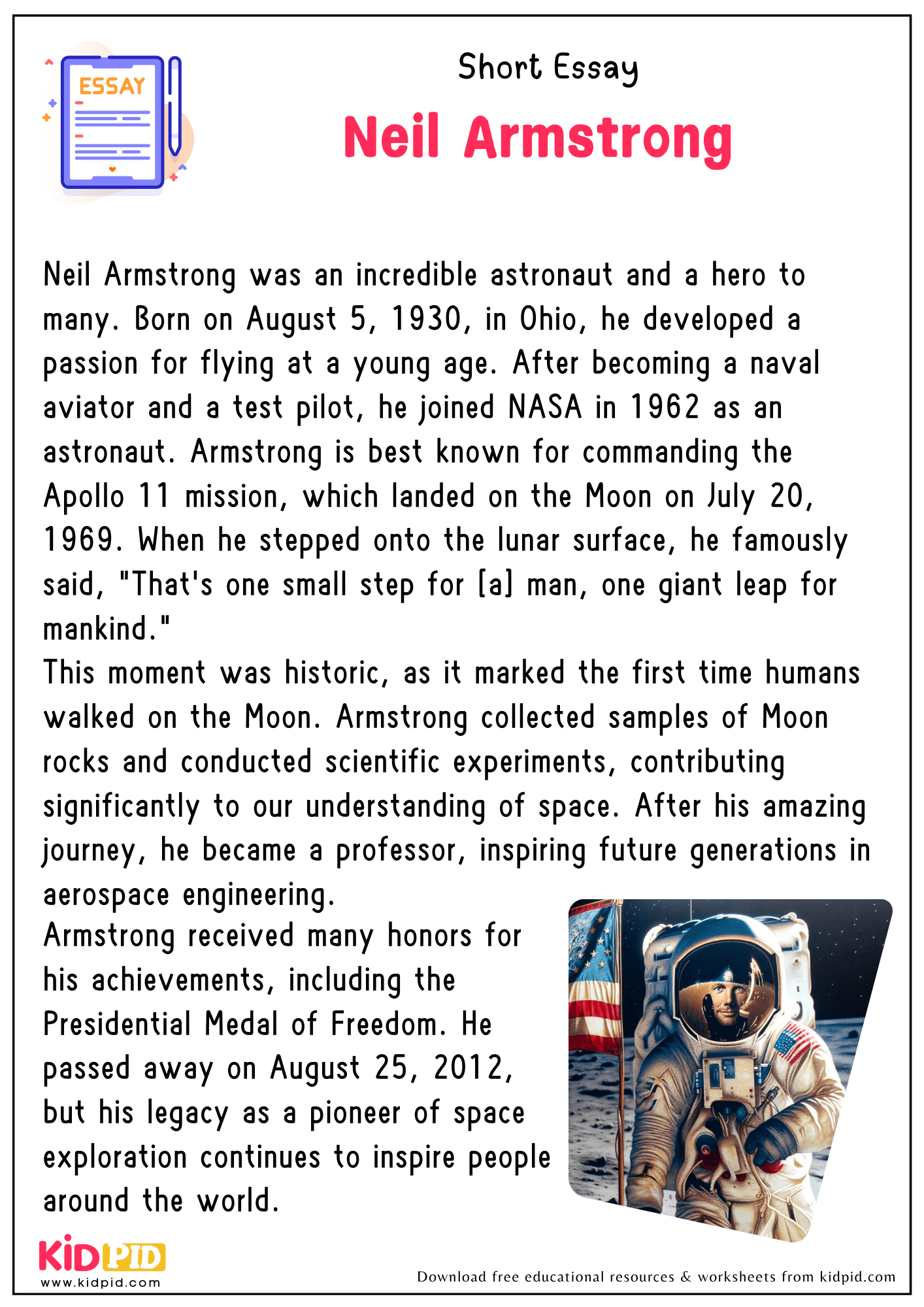
This essay analyzes Neil Armstrong’s monumental achievement as the first astronaut to walk on the Moon, highlighting his pioneering spirit, contributions to space exploration, and lasting legacy in scientific history.
Essay – Jane Goodall: Renowned Primatologist and Conservationist
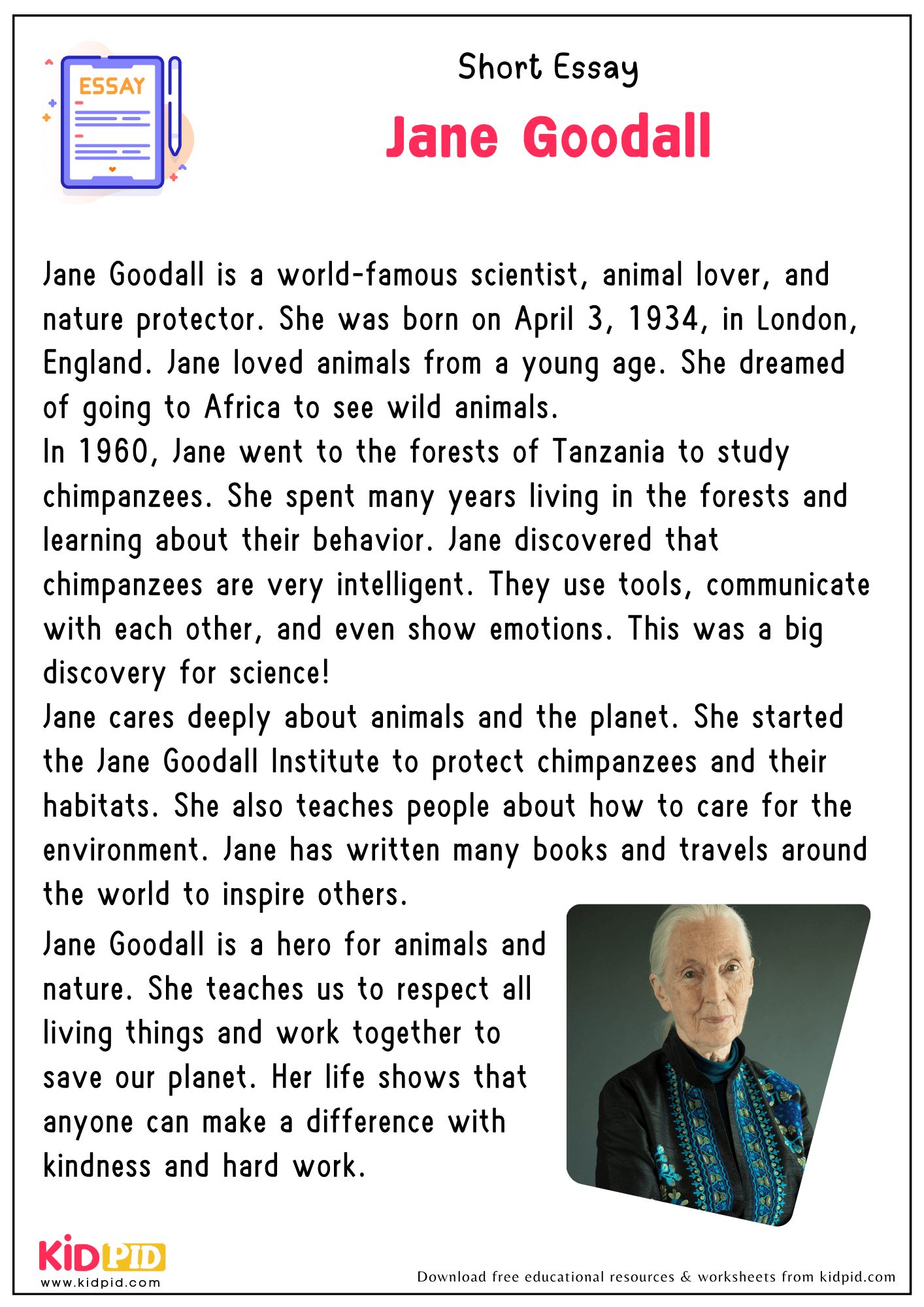
This essay highlights Jane Goodall’s groundbreaking research on chimpanzees, emphasizing her dedication to conservation, animal welfare, and her advocacy for environmental protection, inspiring global efforts to preserve wildlife.



